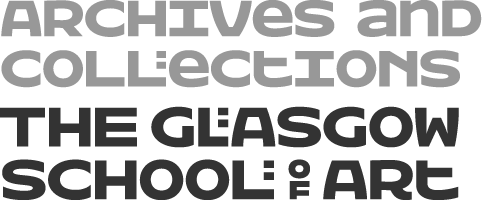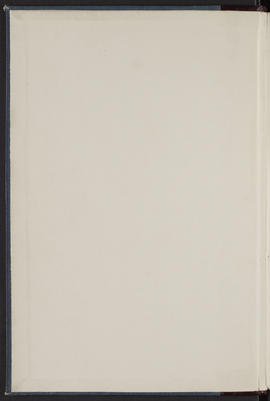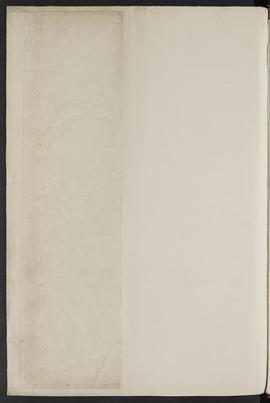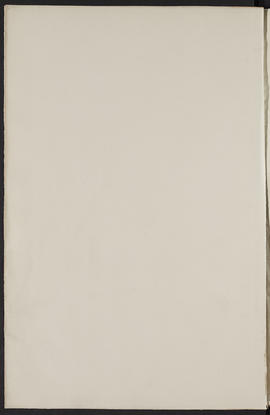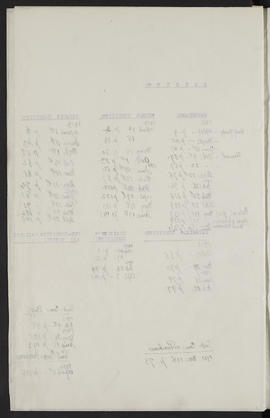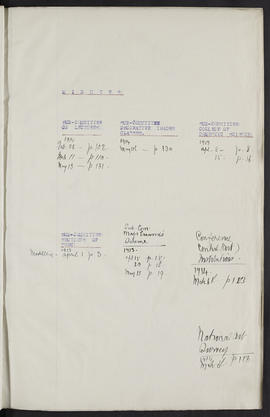Key Information
Reference code
Title
Date(s)
- Mar 1913-Jun 1914 (Creation)
Level of description
Item
Extent
1 item
Content and Structure
Scope and content
Appraisal, destruction and scheduling
Accruals
System of arrangement
General Information
Name of creator
Administrative history
The Glasgow School of Art has its origins in the Glasgow Government School of Design, which was established on 6 January 1845. The Glasgow Government School of Design was one of twenty similar institutions established in the United Kingdom's manufacturing centres between 1837 and 1851. Set up as a consequence of the evidence given to the House of Commons Select Committee on Arts and their connection with Manufactures of 1835-1836, the Government Schools hoped to improve the quality of the country's product design through a system of education that provided training in design for industry. Somerset House was the first of such schools to be established, opening in 1837, and others followed throughout the provinces.
In 1853 the Glasgow Government School of Design changed its name to the Glasgow School of Art. Following the receipt of some funding from the Haldane Academy Trust, (a trust set up by James Haldane, a Glasgow engraver, in 1833), The Glasgow School of Art was required to incorporate the name of the trust into its title. Consequently, it became the Glasgow School of Art and Haldane Academy, although by 1891 the "Haldane Academy" was dropped from the title. Glasgow School of Art was incorporated in 1892. In 1901 the Glasgow School of Art was designated a Central Institution for Higher Art Education in Glasgow and the West of Scotland.
Initially the School was located at 12 Ingram Street, Glasgow, but in 1869, it moved to the Corporation Buildings on Sauchiehall Street, Glasgow. In 1897 work started on a new building to house the School of Art on Renfrew Street, Glasgow. The building was designed by Charles Rennie Mackintosh, former pupil of The Glasgow School of Art. The first half of the building was completed in 1899 and the second in 1909.
The Government Schools ran courses in elementary drawing, shading from the flat, shading from casts, chiaroscuro painting, colouring, figure drawing from the flat, figure drawing from the round, painting the figure, geometrical drawing, perspective, modelling and design. All these courses were introduced from the start at the Glasgow School apart from that of design. The course in design was the "summit of the system" where students came up with original designs for actual manufactures or decorative purposes and it was not until 1849, when Charles Heath Wilson became headmaster, that classes in design began to be taught. Also in this year Bruce Bell was engaged to teach mechanical and architectural drawing.
After 1853 the above pattern of courses was extended to 26 stages which formed the national curriculum for art schools. This system was known as the South Kensington system. An Art Masters could be awarded by gaining certificates in the available subjects. There was no restriction on entry and students could take as long as they wished to accumulate their passes before being awarded their Art Masters.
In 1901 the Glasgow School of Art was given the power to award its own diplomas. In the same year Art 91D classes for day school teachers commenced which were later known as the Art 55 classes. From 1901 to 1979 the School of Art awarded its own diplomas and thereafter it awarded degrees of the Council for National Academic Awards. In the 1970s the School of Fine Art and the School of Design were established. With the demise of the Council for National Academic Awards, from 1993 Glasgow University awarded the School's degrees in fine art and design.
In 1885 the Glasgow School of Art taught architecture and building construction conforming to the South Kensington system. Following on from the designation of the School as a Central Institution and the empowerment of the School to award its own diplomas, the School and the Glasgow and West of Scotland Technical College worked together to produce a curriculum for a new course leading to a joint diploma.
In 1903 the joint Glasgow School of Architecture was established within the Glasgow School of Art in conjunction with the Glasgow and West of Scotland Technical College. For the new diploma design classes were to be taught at the School of Art and the construction classes at the Glasgow and West of Scotland Technical College. The first diplomas in architecture were awarded in 1910.
In 1924 the Glasgow School of Art became a university teaching institution when the University of Glasgow set up a BSc in Architecture which was to be taught at the School of Architecture. In 1964 the Royal College of Science and Technology (formerly the Royal Technical College, formerly the Glasgow and West of Scotland Technical College) merged with the Scottish College of Commerce to form the new University of Strathclyde. Following the merger the Glasgow School of Architecture came to an end, the last students transferring to Strathclyde degrees and graduating in 1968.
In 1970 the Mackintosh School of Architecture was established. It is housed within the Glasgow School of Art and forms that school's Department of Architecture. Its degrees are accredited by the University of Glasgow and its Head is the University's Professor of Architecture.
The Glasgow Government School of Design was originally managed, as were the other Government Schools, by the Board of Trade and a Committee of Management representing local subscribers. Then, in 1852, the Government Schools of Design were taken over by the Department of Practical Art. This Department was renamed the Department of Science and Art in 1853 and was located in South Kensington, London. The Committee of Management was replaced in 1892 by the Board of Governors. In 1898, control of the School was transferred again, this time to the Scotch Education Department (renamed the Scottish Education Department in 1918).
The School became academically independent in 1901 when it was free to develop its own curriculum and its own diplomas, subject to the approval of the Scottish Education Department. The chief executive of the School was the Headmaster, renamed Director in 1901, and a Secretary and Treasurer was responsible for all aspects of the administration of the School. As the School grew, other administrative posts were added.
Archival history
Custodial history
Physical Description and Conditions of Use
Conditions governing access
Conditions governing reproduction
Language of material
Script of material
Language and script notes
Physical Description
Typed in bound volume.
Finding aids
Related Material
Existence and location of originals
Existence and location of copies
Related materials
Notes area
Note
The front cover of the index book is affixed to the inside back cover of the volume.
Alternative identifier(s)
Keywords/Tags
Place access points
People and Organisations
- The Glasgow School of Art (Subject)
